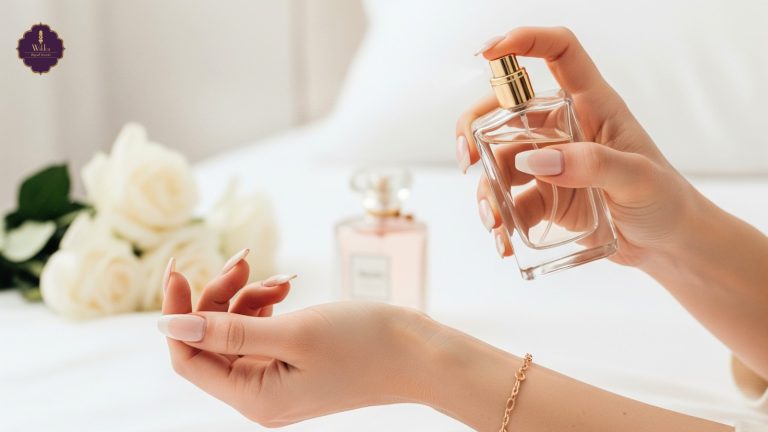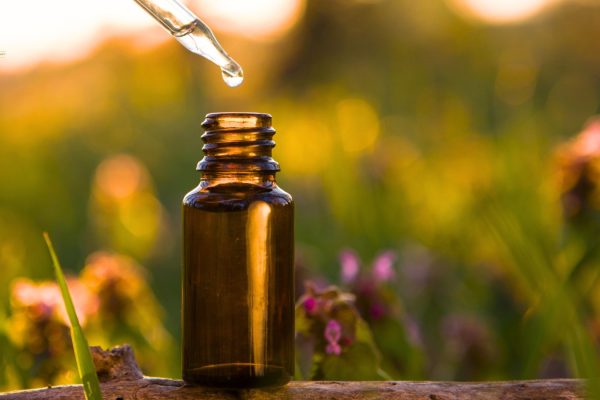Have you ever caught a whiff of someone’s perfume and instantly fell in love with the smell, as if that’s the exact scent you’ve been searching for? But then, when you try it on yourself, it somehow falls flat, fades too fast, or even smells, completely different? Well, you are not alone. This has been one of the great mysteries of the fragrance world.
Perfume isn’t a one-size-fits-all accessory. In fact, what smells divine on someone might not work the same magic on your skin. Why? Because perfume doesn’t just sit on the surface, it reacts with you. Your skin’s unique chemistry, your hormones, your pH levels, and even how hydrated you are all play a part in how a scent develops.
So, before you feel like getting caught in a riddle, let’s understand the hidden science behind scent chemistry, why the same fragrance smells different on everyone, and how you can find your signature scent that feels like it was made just for you.
Body Chemistry: The Invisible Influencer
At the heart of this fragrance mystery lies your unique body chemistry. Every person has a distinct mix of skin pH, hormonal balance, and natural oils, all of which can influence how a perfume smells on your skin.
- Skin pH: This refers to how acidic or alkaline your skin is. Most perfumes are formulated to perform best at a balanced pH level (around 5.5). If your skin is more acidic or more alkaline, it may alter the way certain ingredients in a fragrance react, shifting the scent subtly—or dramatically.
- Hormones: Our hormone levels fluctuate daily and can be influenced by stress, menstrual cycles, medication, or even diet. These changes can affect body odor and, by extension, how a fragrance interacts with your skin.
- Natural Oils: The oiliness or dryness of your skin plays a major role in fragrance development. Oily skin tends to hold fragrance longer and enhances warm, rich notes like amber or musk. Drier skin might cause the scent to fade quickly or turn slightly powdery.
Temperature and Skin Moisture: The Scent Shifters
Your body’s temperature and moisture levels also impact the way perfume unfolds on your skin.
- Heat Amplifies Notes: Warmer body areas like the neck, wrists, and behind the ears intensify fragrance diffusion. This is why perfumes often smell stronger in summer or after a workout—the heat releases more of the scent compounds into the air.
- Dry Skin Dulls Fragrance: Perfumes need moisture to bind and last. If your skin is very dry, the fragrance might evaporate quickly without fully developing. Applying a light, unscented moisturizer before your perfume can help anchor the scent.
Perfume Ingredients That Interact Differently
Not all perfume ingredients behave the same on everyone. Some are more volatile, meaning they evaporate faster, while others tend to cling to the skin longer. The interaction depends on both the ingredient and your unique biology.
- Citrus & Green Notes tend to be top notes—fresh, bright, and short-lived. These are more sensitive to pH and may vanish quickly on dry or acidic skin.
- Woody, Resinous & Musky Notes are base notes that stick around. They’re more likely to interact with skin oils and evolve over time, often smelling warmer or sweeter depending on your chemistry.
- Floral & Spicy Notes sit in the middle and can be altered the most depending on the hormonal and oil levels of your skin.
This explains why a jasmine-based perfume can smell powdery on one person, creamy on another, and downright sharp on someone else.
How to Find a Perfume That Works with Your Body Chemistry: Tips & Tricks
Landing with a perfume that smells just right includes both art and science. Here are some tips you might want to try:
- Test on Skin, Not Paper: Perfume testers on paper strips are helpful, but they won’t tell you how the scent evolves with your skin chemistry. Always spray on your wrist and wait at least 30 minutes to see how it truly smells.
- Give It Time: Let the perfume develop fully. The first impression (top notes) is only part of the story. The middle and base notes emerge after 20–40 minutes and last for hours.
- Layer Wisely: Use an unscented moisturizer before applying perfume to help lock in the scent. Avoid mixing strongly scented body products, as they can clash or override the fragrance.
- Take Note of Compliments: Often, others can detect your scent’s evolution better than you can. If you repeatedly get compliments on a particular perfume, that’s a good sign it suits your body chemistry.
- Avoid Overbuying on Impulse: What smells divine in-store might not work the same way after a few hours. Always take a sample home and wear it across different days and temperatures before investing.
Perfume is deeply personal—it is not just about the notes listed on the bottle, but how those notes come alive on your skin. By getting the insight of your body chemistry and the relationship with fragrances, you can navigate the perfume world with more confidence and find that elusive scent that smells like it was made just for you.
So, the next time a perfume smells differently on your skin than it does on your best friend, don’t be disheartened. That’s not a flaw—it’s the beauty of perfume. Like a whispered secret between scent and skin, it transforms into something uniquely you. That’s the true magic of fragrance: it doesn’t just smell good—it tells your story.





